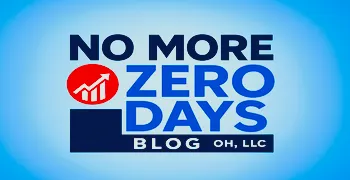
Guide to Brand Awareness: How New Companies Can Build Recognition and Drive Sales
You’ve created the most incredible product or service the world has ever seen. It solves real problems, delivers exceptional value, and could genuinely change people’s lives. There’s just one tiny problem – nobody knows it exists. Sound familiar? Welcome to the world of hidden gems that never quite sparkle because they’re buried too deep for anyone to find them.
In today’s hyper-connected, attention-deficit world, having an amazing business isn’t enough. You need people to know about your amazing company. That’s where brand awareness comes in – and trust me, it’s not just marketing fluff. It’s the difference between being the best-kept secret and being the go-to solution everyone talks about.
What Is Brand Awareness and Why Does It Matter for Business Success?
Brand awareness refers to the level of familiarity people have with your brand and how easily they can recognize it when they see it [Amazon Ads](https://advertising.amazon.com/library/guides/brand-awareness). Think of it as your business’s social credit score – the higher it is, the more doors it opens.
But here’s where it gets interesting: brand awareness isn’t just about recognition. It’s about being the first name that pops into someone’s mind when they have a problem your business can solve. When someone thinks “I need a ride,” they think Uber. When they need to search for something, they “Google it.” That’s the power of top-of-mind brand awareness.
Research shows that higher brand awareness directly correlates with increased market share and sales [Attest](https://www.askattest.com/blog/articles/the-importance-of-brand-awareness). It’s like having a head start in a race – before your competitors even begin their sales pitch, customers already trust and prefer your brand.
For new companies, brand awareness is particularly crucial because it’s the foundation upon which all other marketing efforts are built. Without brand recognition, you’re essentially shouting into the void, hoping someone will notice your brilliant solution among the millions of other businesses vying for attention.
The Hidden Costs of Low Brand Awareness: Common Problems New Businesses Face
Let’s talk about the elephant in the room – what happens when your brand awareness is lower than your motivation on a Monday morning? The problems are more serious than you might think, especially for newer companies trying to establish themselves in competitive markets.
The Trust Gap That Costs Sales
In a world where consumers are bombarded with choices, familiarity breeds confidence. Studies from the National Library of Medicine reveal that brand awareness has a significant influence on cognitive processing and emotional connections with brands [National Library of Medicine](https://pmc.ncbi.nlm.nih.gov/articles/PMC7303260/). When people don’t know your brand, they’re naturally hesitant to trust you with their hard-earned money. For new companies, this trust gap is even wider because they lack the social proof that comes with established brands.
Price Competition and Reduced Profit Margins
Unknown brands often compete solely on price because they haven’t established value in consumers’ minds. This creates a race to the bottom that’s about as fun as it sounds – and equally profitable. New businesses often fall into this trap, thinking they need to undercut established competitors to gain market share.
High Customer Acquisition Costs
When nobody knows who you are, every customer acquisition feels like convincing someone to try sushi for the first time. It’s possible, but it takes a lot more effort and money than it should. Customer acquisition costs for unknown brands can be five to ten times higher than those for recognized brands.
Competitive Disadvantages in the Market
Companies with strong brand awareness create what Investopedia calls an “economic moat” [Investopedia](https://www.investopedia.com/terms/b/brandawareness.asp). Think of brands like Coca-Cola or Nike – their brand awareness makes it incredibly difficult for competitors to steal market share, even with superior or cheaper products.
Limited Word-of-Mouth Marketing
People can’t recommend what they can’t remember. Low brand awareness means fewer word-of-mouth referrals, which are often the most valuable and cost-effective customer acquisitions for new businesses.
Proven Benefits of Strong Brand Awareness: The ROI of Recognition
Now for the good news – when you get brand awareness right, the results can be transformative. We’re talking about changes that make you want to do a happy dance in your office (go ahead, nobody’s judging).
Increased Market Share and Revenue Growth
This isn’t just correlation – it’s causation. When more people know your brand, more people choose your brand. It’s beautifully simple math that leads to beautifully complex bank statements.
Enhanced Customer Loyalty and Retention
Familiar brands don’t just win customers; they keep them. When people know and trust your brand, they’re less likely to shop around with your competitors. It’s like being in a committed relationship instead of constantly dating.
Premium Pricing Power and Higher Profit Margins
Strong brand awareness allows you to charge premium prices because you’re selling value, not just products. Apple charges more for iPhones not because they’re necessarily better than every competitor, but because their brand awareness has created perceived value.
Reduced Marketing Costs Over Time
Here’s the beautiful irony – the more brand awareness you have, the less you need to spend on marketing to maintain it. It’s like compound interest for your business reputation.
Improved Talent Acquisition and Strategic Partnerships
Strong brand awareness doesn’t just attract customers; it attracts top talent and strategic partners. People want to work with and for brands they recognize and respect.
How to Create Compelling Value Propositions That Resonate With Your Target Audience
Here’s where many businesses trip up – they think brand awareness is just about getting their name out there. But effective brand awareness is built on a foundation of compelling value propositions that genuinely resonate with target audiences.
A value proposition is your business’s elevator pitch to the world. It answers the fundamental question: “Why should I choose you over everyone else?” [Podium](https://www.podium.com/guides/how-to-craft-a-value-proposition). But here’s the kicker – it needs to be more compelling than a Netflix series finale.
Understanding Your Target Audience
Before you can resonate with your target audience, you need to understand them better than they understand themselves. What keeps them up at night? What makes them excited? What problems are they desperately trying to solve? [Shopify](https://www.shopify.com/blog/value-proposition). Conduct surveys, interviews, and social media listening to truly understand your audience’s pain points.
Clear Communication Over Clever Marketing
Your value proposition should be so clear that a distracted teenager scrolling through social media can understand it in three seconds. Save the clever wordplay for your company newsletter [Helpscout](https://www.helpscout.com/blog/value-proposition-examples/).
Focus on Benefits, Not Features
People don’t buy features; they buy outcomes. Instead of saying “Our software has advanced analytics,” say “Our software helps you make decisions that increase revenue by 23%.” See the difference?
Meaningful Differentiation Strategies
Being different isn’t enough – you need to be different in ways that matter to your customers. Having purple packaging might be unique, but if it doesn’t solve a real problem, it’s just purple packaging [Intelemark](https://www.intelemark.com/blog/how-to-create-a-compelling-value-proposition-a-step-by-step-guide/).
Testing and Optimization
Value propositions should be living documents that evolve based on feedback and market response. A/B test different versions to see what resonates most with your audience [Podium](https://www.podium.com/guides/how-to-craft-a-value-proposition).
Brand Awareness Strategies for New Companies: Building Recognition from Zero
Starting a new company and building brand awareness can feel like trying to fill an ocean with a teaspoon. But here’s the secret: you don’t need to boil the ocean – you just need to dominate your pond first. Let’s explore strategies specifically designed for companies that are starting from ground zero.
The Niche Domination Strategy for New Businesses
Start Small, Think Big: Instead of trying to compete with established giants across broad markets, identify a specific niche where you can become the undisputed leader. It’s better to be the biggest fish in a small pond than a tiny fish in an ocean. This focused approach allows you to:
- Build authentic expertise and authority in your chosen area
- Create stronger connections with a specific audience
- Generate more meaningful engagement and word-of-mouth
- Establish case studies and success stories more quickly
Local Market Penetration: If you’re a location-based business, own your local Market first. Become the go-to solution in your city before expanding. This creates a foundation of loyal customers and referrals that you can leverage for broader expansion.
Content Marketing: Your Secret Weapon for Brand Awareness
For new companies, content marketing is like having a superpower that costs more time than money. Here’s how to leverage it effectively:
Educational Content Strategy: Position yourself as the helpful expert by creating content that solves real problems for your target audience. When people consistently find valuable information from your brand, they naturally associate you with expertise and helpfulness.
SEO-Optimized Blog Posts: Create comprehensive, helpful blog posts targeting keywords your potential customers are searching for. This builds organic visibility over time and establishes your authority in search results.
Video Content Marketing: Whether it’s tutorials, behind-the-scenes content, or customer stories, video builds stronger emotional connections than text alone. Even simple, authentic videos shot on smartphones can be incredibly effective for new brands.
Social Media Storytelling: Use platforms like Instagram, LinkedIn, or TikTok to tell your brand’s story authentically. Share your journey, challenges, victories, and the people behind your company. Authenticity resonates strongly, especially for newer brands.
Strategic Partnerships and Collaborations
Complementary Business Partnerships: Partner with businesses that serve the same audience but aren’t direct competitors. For example, a new fitness app might partner with healthy meal delivery services or workout gear companies.
Influencer Marketing Collaborations: Work with micro-influencers (1,000-10,000 followers) in your niche. They often have higher engagement rates and more authentic connections with their audiences than macro-influencers, and they’re more affordable for new companies.
Guest Appearances and Thought Leadership: Appear on podcasts, write guest blog posts, or participate in industry events. This leverages other people’s audiences to build your own brand awareness.
Customer Experience as a Brand Differentiator
Exceptional Customer Service: When you’re new, every customer interaction is an opportunity to create a brand advocate. Go above and beyond in customer service – it’s often the fastest way to generate word-of-mouth marketing.
Personal Touch Marketing: Use your size advantage. While large companies struggle with personalization, you can know your customers by name, remember their preferences, and create genuinely personal experiences.
Customer Success Stories and Case Studies: Document and share customer success stories and case studies. These serve as both social proof and content that demonstrates your value proposition in action.
Community Building and Engagement Strategies
Online Community Building: Create or participate in online communities where your target audience gathers. Provide value consistently without being overly promotional. Whether it’s Facebook groups, Reddit communities, or Slack channels, authentic participation builds awareness organically.
Local Business Involvement: Participate in local business events, sponsor community activities, or volunteer for causes aligned with your values. This builds local brand awareness and demonstrates your commitment to the community.
User-Generated Content Campaigns: Encourage customers to share their experiences with your brand on social media. Create hashtags, run contests, or simply ask satisfied customers to share their stories.
Digital Marketing Tactics for New Companies
Targeted Google Ads: Use targeted Google Ads and social media advertising to get immediate visibility while your organic efforts build momentum. Start with small budgets and focus on highly specific, intent-driven keywords.
Retargeting Campaigns: Implement retargeting pixels to stay visible to people who have visited your Website but haven’t made a purchase yet. This keeps your brand top-of-mind during their consideration process.
Email Marketing for Brand Building
Email List Building: Build an email list from day one and nurture it consistently with valuable content, updates, and special offers. Email marketing often has the highest ROI of any digital marketing channel.
Social Proof Integration
Customer Reviews and Testimonials: Display customer reviews, testimonials, and trust badges prominently on your Website and marketing materials. Social proof is especially important for new brands trying to establish credibility.
How to Measure Brand Awareness: Key Metrics and KPIs: Essential Brand Awareness Metrics
Key Performance Indicators: Track branded search volume (people searching specifically for your company), direct Website traffic, social media engagement rates, share of voice in your industry, and brand mention frequency across digital platforms [Amazon Ads](https://advertising.amazon.com/library/guides/brand-awareness).
Customer Surveys and Market Research: Regularly survey your target market to measure assisted and unaided brand recall. This provides direct insight into how your brand awareness efforts are progressing.
Social Listening and Brand Monitoring: Monitor mentions of your brand, competitors, and industry keywords across social media and online platforms. This helps you understand brand perception and identify opportunities for engagement.
Long-Term Brand Building: Creating Sustainable Brand Awareness
Brand awareness isn’t a sprint; it’s a marathon with really great rewards at the finish line. Companies that invest consistently in building genuine, value-driven brand awareness create sustainable competitive advantages that are incredibly difficult for competitors to replicate.
The key is patience combined with persistent action. Every piece of content you create, every customer interaction you optimize, and every value proposition you refine contributes to a larger brand story that resonates with your audience.
For new companies, the journey from unknown startup to recognized brand can seem daunting, but remember that every successful brand started exactly where you are now. The brands we recognize today as household names all began with zero awareness and built their recognition through consistent, strategic efforts over time.
Consistency Over Perfection in Brand Building
It’s better to consistently deliver good content and experiences than to deliver perfect ones occasionally. Your audience will remember brands that show up regularly more than those that disappear for months at a time.
Authenticity as a Competitive Advantage
New companies often worry about not being “polished” enough compared to established competitors. But authenticity and relatability can be significant advantages. People connect with real stories and genuine passion more than corporate perfection.
Long-term Brand Strategy
While it’s important to track short-term metrics, remember that brand awareness is a long-term investment. Some of the most successful brand awareness campaigns don’t show immediate ROI but build equity that pays dividends for years or even decades.
Remember, in a world where attention is the new currency, brand awareness is your business’s credit limit. The higher it is, the more opportunities you can access, the more premium prices you can command, and the more sustainable your success becomes. For new companies, building brand awareness isn’t just about marketing – it’s about survival and growth in an increasingly competitive marketplace.
FAQ
Q: How long does it typically take to build meaningful brand awareness for a new company?
A: For new companies, building significant brand awareness usually takes 6-18 months of consistent effort, though this varies greatly depending on your industry, budget, strategy, and niche size. The key is consistency rather than perfection – regular, valuable interactions with your audience compound over time. New companies can often see initial recognition within their local Market or specific niche within 3-6 months if they focus their efforts strategically.
Q: What’s the biggest mistake new companies make when trying to build brand awareness?
A: The biggest mistake is trying to be everything to everyone right from the start. New companies often spread their limited resources too thin across multiple audiences and channels, instead of focusing on one specific niche first. It’s much more effective to become the go-to solution for a specific group of people than to be barely noticed by a broad audience. Focus on your ideal customer and build outward from there.
Q: What’s the most cost-effective way for a new company to start building brand awareness?
A: Start with content marketing and authentic social media engagement. Create valuable, helpful content that solves real problems for your specific target audience. This builds awareness while establishing your expertise, and it’s much more cost-effective than traditional advertising. Combine this with strategic partnerships, exceptional customer service, and community involvement for maximum impact on a minimal budget.
Q: How can a new company compete with established brands that have much larger marketing budgets?
A: New companies have several advantages: agility, authenticity, and the ability to provide personalized experiences. Focus on being more personal, responsive, and authentic than larger competitors. Use your size to your advantage by getting to know customers personally, responding quickly to feedback, and adapting rapidly to market changes. Target specific niches where you can become the recognized expert rather than competing head-to-head in broad markets where established brands have the advantage.
Cheers and all the Best, Timothy
For the brief linkedIn version:
References:
What Is Brand Awareness?. http://waytobehappy.org/brand-awareness.html
Can Too Much Sugar Lead to Hair Loss? - Vinci Hair Clinic. https://vincihairclinic.com/en/can-too-much-sugar-lead-to-hair-loss/
Introduction to Business Management: Winning Externally | Coursera. https://www.coursera.org/learn/introduction-to-business-management-winning-externally
How to use content marketing to support community building and engagement - CEOweb Ltd. Blog. https://ceowebltd.com/blog/how-to-use-content-marketing-to-support-community-building-and-engagement/
eCommerce: Top 10 Tips on Writing Product Descriptions | DueTrade. https://www.duetrade.co.uk/blog-posts/ecommerce-top-10-tips-on-writing-product-descriptions
What makes a killer online business that actually sells?. https://0x8h.site/item/what-makes-a-killer-online-business-that-actually-sells
The DUP thread. http://gaaboard.com/board/index.php?PHPSESSID=9449b0b7ddb85687f0030feeae9645ac&topic=31827.0;wap2
Why Small Businesses Need An SEO Company | NEXT Digital Agency. https://nextdigitalagency.com/blog/why-small-businesses-need-an-seo-company/
Mastering App Marketing Strategies: Essential Tutorials & FAQs for Success – Social Masla. https://socialmasla.com/mastering-app-marketing-guide-34/
What Is Personal Branding | William Meller. https://williammeller.com/personal-branding/
Humanizing Brand Communication: 5 Authentic Content Strategies in an AI-Driven World https://glimpsecommunications.com/blogs/take-a-glimpse/humanizing-brand-communication-5-authentic-content-strategies-in-an-ai-driven-world
How to Measure Brand Awareness: Key Metrics and Strategies. https://www.magenative.com/mobile-app-brand-awareness/
These Retail Marketing Campaign Examples Are a Sure Thing for Your Store’s Promotion | the Centurion | the Centurion. https://news.centurionjewelry.com/articles/detail/these-retail-marketing-campaign-examples-are-a-sureshot-for-your-stores-promotion
How to use content marketing to support community building and engagement - CEOweb Ltd. Blog. https://ceowebltd.com/blog/how-to-use-content-marketing-to-support-community-building-and-engagement/





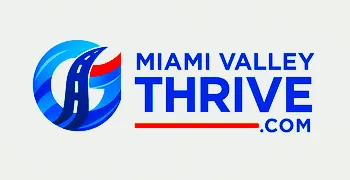
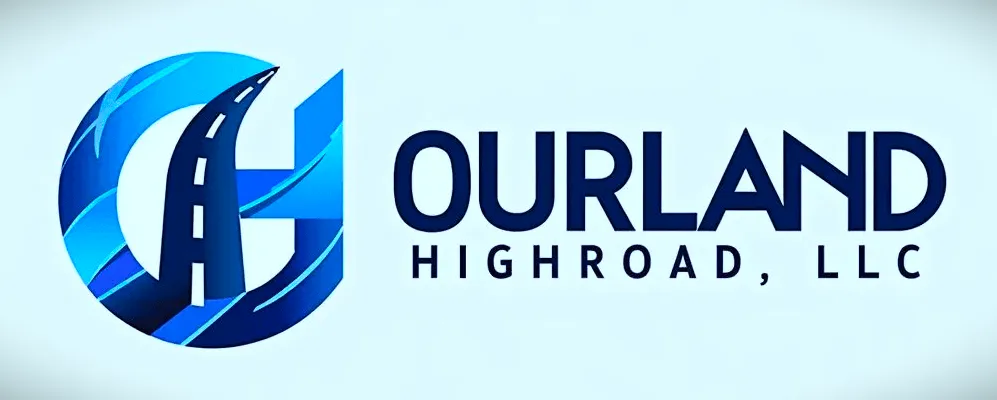
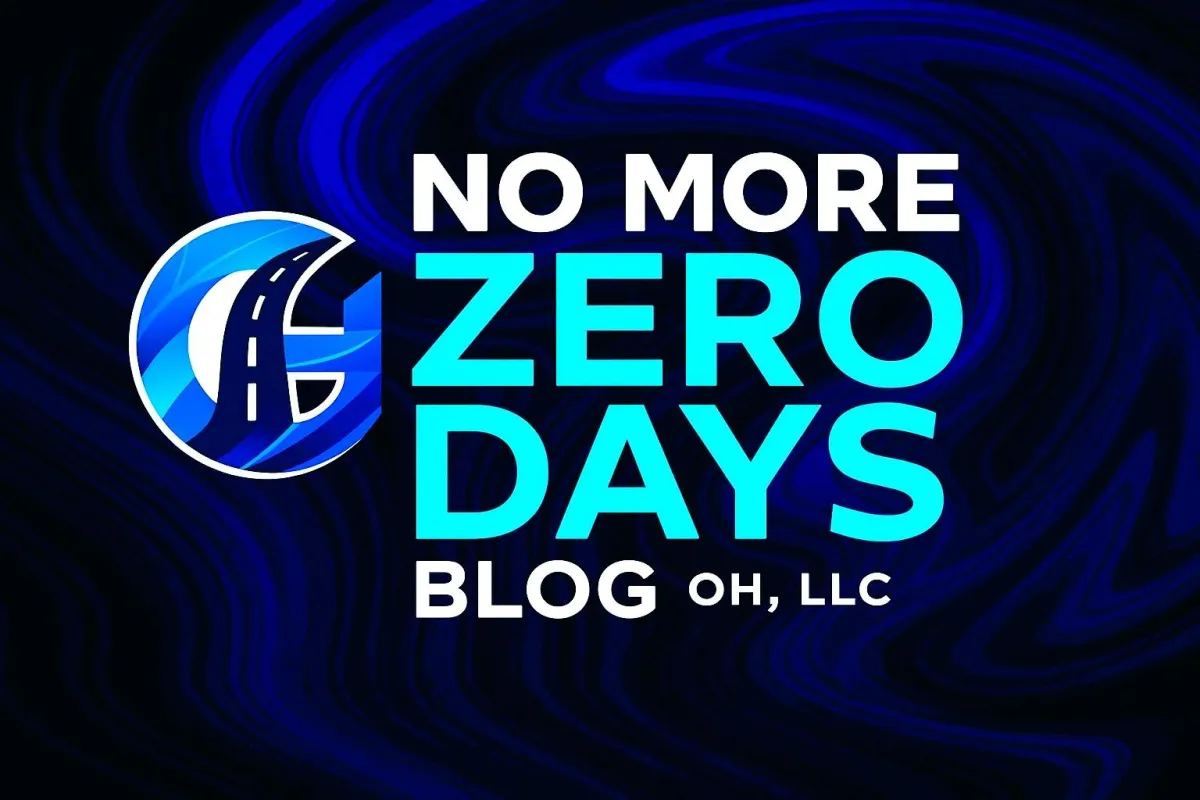
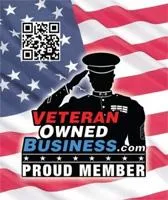
Instagram
LinkedIn
Youtube
X